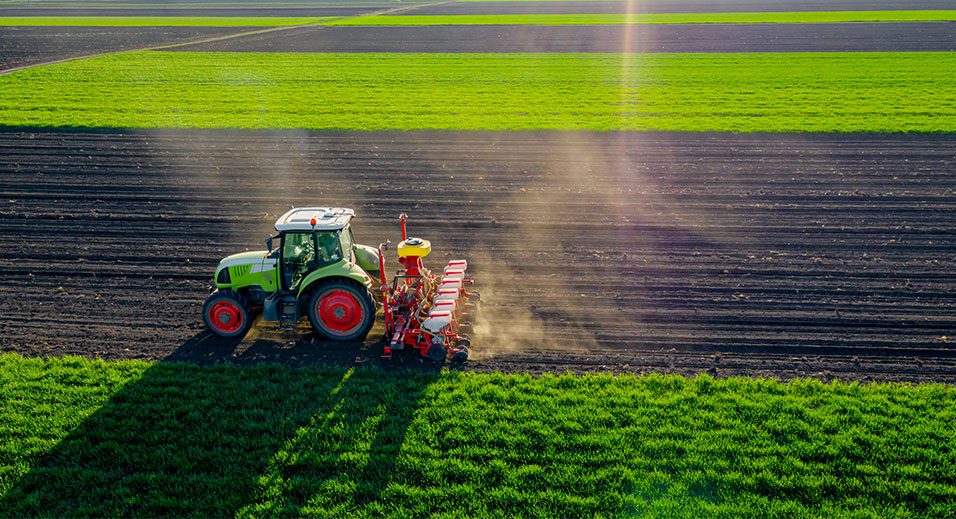Annual Letter to Shareholders
Michael H. McCain, President and Chief Executive Officer’s 2022 annual Letter to Shareholders.
To our Shareholders:
With each passing year, I am more grateful to have shed some of youth’s impatience favouring a longer-term view. The global pandemic has delivered challenges and uncertainty, yet we knew that focusing on the horizon, not the waves beneath us, would be a steadying force for our company. After two years of endless chaos, Maple Leaf Foods continues to demonstrate resilience, driving growth and delivering record financial performance by creating value for all stakeholders.
Our Blueprint, which frames the strategic initiatives that advance our vision to be the most sustainable protein company on earth, has served us well in these times. We made progress on all fronts, grounded in the conviction that the best path to creating enduring value for shareholders is by creating value for all stakeholders. Of course, we have clear near-term financial targets which we are confident we will meet, while being very mindful of balancing both short- and longer-term objectives. Our trajectory for continued growth and even further enhanced performance is also apparent, particularly as we complete some significant capital projects to yield further scale efficiencies and more value-added capacity.
Our Meat business, representing 96% of our revenue, delivered impressive topline results in 2021, up 8% on a 52-week equivalent basis, while delivering record Adjusted EBITDA of $527 million and strong margins of 12.1%. We achieved these results during a time of protracted COVID-related chaos across the entire food industry, including up to 30% absenteeism at some of our facilities, supply chain disruptions, rampant ongoing inflation, and volatile markets. In the middle of this, our Meat Group delivered a record year — again!
Financial results from our plant-protein business were less stellar, impacted by the same market pressure as our peers in this space. After three years of exceptional growth, the category slowed markedly, to be down slightly year over year. Our results mirrored the category, resulting in U.S. dollar sales growth of (-4.6%) on a 52-week equivalent basis. When we first entered this market in 2017, growth rates were in the low double digits, highly attractive compared to most other grocery categories. They soared to new levels late in 2018 with the entrance of new companies, a flurry of new products and significant media hype.
We have completed an exhaustive analytical assessment of the plant-based meat alternative category and consumer behaviour landscape and shared the key takeaways in our year-end investor communications. While we are confident that growth in this category will continue to well exceed conventional grocery, we have modified our expectations. High growth rates were driven by media induced trial rates. However, their expectations were not fully met – from how the product tastes, to the level of processing, value, or appeal to the whole family. As a result, they are not repeating or habitualizing nor increasing buy-rates that all category observers felt was possible. There is underlying good news though. Roughly 60% of North American households have tried plant-based meat alternatives and there is a base of consumers that is growing with modest increases in their buy-rate. While not our prior expectation of spectacular growth, we now believe the future will provide steady and attractive category growth rates between 10-15%.
We have leading retail brands in the plant- based meat alternative sector and it remains an important part of our portfolio. Where our current investment in SG&A was warranted within a category delivering 30%+ growth rates, we will revise our investment levels to match the revised fact-set of our investment thesis, which involves rightsizing SG&A spend and operating footprint to forecasted growth rates. We expect this business now to be EBITDA neutral or better within 18 months, which is still an investment posture, but not at the same prior levels.
Throughout the year, despite managing through the COVID headwinds, we maintained our focus on sustained profitable growth. Progress continued on our $770 million poultry plant in London, Ontario, which will be completed later this year. It will be the most advanced facility of its kind ever built in Canada and will transform our poultry business through state-of-the-art food safety, people safety and animal care technologies. By increasing value-added processing capacity and reducing costs through consolidating production from three aging facilities into one highly efficient plant, we expect it to contribute incremental EBITDA of over $100 million each year when fully ramped up.
At our Lagimodiere plant in Winnipeg, we completed a 73,000 square foot expansion to create a Maple Leaf Bacon Centre of Excellence. The project significantly expands production capacity for our growing pre-cooked bacon line to meet rising market demand, adding a further $30 million to EBITDA annually when fully operational. We acquired an existing food facility in Indianapolis, transforming it into the world’s first dedicated scale tempeh plant, a category where we lead the market. This was an outstanding path to rapidly and effectively expand our production capacity to meet the tremendous growth in our Lightlife tempeh line.
Being the most sustainable protein company on earth is our vision and what increasingly differentiates us in the marketplace. In 2021, we completed our second year as the world’s first scale carbon neutral food company, a commitment that is permanent. We made more progress in reducing our footprint and more investments in high-quality projects that offset unavoidable emissions. Our science-based targets, which align with the scale of reductions required to keep global warming below 2°C from pre-industrial levels, are never far from our thinking, and we have a comprehensive plan to achieve them. While there is a myriad of smaller initiatives, we are most excited about the role of two game-changing technologies and practices that can fundamentally alter the greenhouse gas footprint of our industry: anaerobic digestion and regenerative agriculture. We have material plans under development in both of these spaces.
While I have both pride and confidence in Maple Leaf, it is urgent we face the truth about the state of our world and our industry. As I look beyond our borders, I see that while globalization has delivered overall prosperity, it has done so in a race to the bottom. We’ve seen an appalling increase in gross inequality and social injustice, with endless human conflict that recent events are highlighting as an existential threat to civilization. Our institutions are suffering from a rapid decline of trust among our citizens. Our planet Earth is warming at dire levels and our environment is deteriorating in vivid, frightening ways, yet people largely don’t feel the personal motivation to fight for change, perhaps viewing the problem as simply too large. The last two years of this wretched pandemic have surfaced incredible compassion and selflessness in so many corners, yet it’s been juxtaposed against unacceptable hateful, intolerant, and selfish behaviour.
It could feel paralyzing – yet at Maple Leaf, our Leadership Values call for a clear sense of personal ownership and accountability, even for things we may not be directly responsible for but own nevertheless. Through it all, we’ve taken important stands on critical issues. We have invested in structurally reducing food insecurity through policy reform and innovative community-led programs, and advancing mental health, especially among our people through the isolation and challenges of COVID. We’ve shown leadership in all areas of creating a sustainable enterprise: making better, more sustainable food, being better stewards of the animals in our care, and finding clear paths to meet our science-based targets, all while maintaining our carbon neutral position. We’ve advocated for a new lens on capitalism — a shift that has never been more urgently needed.
Closer to home, as a meat company, we must face the reality that we – along with the entire agri-food industry – have left an unacceptable mark on the planet. Some feel that meat consumption and our industry should go away, as a consequence of our overall footprint. On a practical level, this is unlikely to happen given the long-standing role of meat in human diets. On a more realistic level, we are taking a leadership role in creating a path that remediates our impact. This “and” solution approach is at the core of our shared value ethos. Our hope is that all industries adopt a similar lens– and we are doing our utmost to influence this change.
We must find a path to accelerate solutions! Not incremental progress — solutions. Not more talk — action! This is the future of Maple Leaf Foods and your investment, guided by our Blueprint that will deliver shared value.
Pursuing our purpose to Raise the Good in Food, we have become leaders on several fronts – carbon neutrality, science-based targets, antibiotic-free poultry and pork production, and action on food insecurity, yet this isn’t enough. We will accelerate our regenerative agriculture and anaerobic digestion strategies to go beyond meeting our goals. And we will widen the net of our impact to show more industry leadership, not just our company’s progress. This is not only the essential change needed, but the path to higher levels of growth. Currently, sustainable meat – which includes raised without antibiotics and other welfare and environmental claims – now comprises 16% of our meat sales – more than any scale meat company we know. In the U.S., more than 16,000 stores now carry our sustainable meat items, the reason for our 32% growth in the U.S. over the last two years. We have ambitious plans to continue this momentum, given our leadership in this high growth category.
But all this isn’t enough. We need to accelerate our market position in raising animals without antibiotics, find ways to extend our animal welfare leadership across the industry, and accelerate our leadership of the real food movement. Last year, we completed the conversion of 100% of our company-owned barns to our industry-leading Advanced Open Sow Housing system that gives pregnant sows the freedom to eat, play, and live in social groups. This is a world-leading system, and we need to do more to encourage others to follow.
We’ve also set a goal to use 100% sustainable packaging by 2025 – a very ambitious target given the complexity of balancing the criticality of ensuring food safety while advancing our environmental ambitions. There are barriers, including the pace of innovation and the capacity to support this within the supplier community. We are increasing our efforts to achieve what we see as a visible differentiator in the market and an important part of our environmental action plan.
We are world leaders in our industry on health and safety in our operations, with our industry-leading Total Recordable Injury Rate that has continued its sustained downward trend. We will not stop until nobody gets hurt at Maple Leaf – nobody! Our leadership in global food safety is grounded in learning, investment and preventative action. A suite of operating practices, from daily food safety calls to our annual food safety symposium is supporting our continuous improvement in quality and food safety.
We are investing time, money and talent to address food insecurity in Canada. In one of the world’s richest nations, over 4.5 million people struggle to reliably access the food they need. Food insecurity is one of the leading denominators of inequities in our society, and the pandemic further exacerbated this. We are committed to advancing structural change through the Maple Leaf Centre for Action on Food Security by working collaboratively with civil society, government, and private sector partners.
Our culture and people are our most important assets. We have done significant work to develop a comprehensive People Strategy that spans enhancing our Values-based culture, talent development, mental health supports, volunteerism and increasing our efforts to engage and support our front-line team. We also made further strides to build a more diverse and inclusive culture, fuelled by amazing leadership by our Employee Resource Groups and our Diversity & Inclusion Council.
The future of Maple Leaf Foods is about financial success and delivering value for ALL stakeholders. Our purpose is to Raise the Good in Food in all its dimensions, and we will be seeking to accelerate this in the years to come.
I’m proud to say that we are not your average protein company — nor do we want to be! We are purpose driven. We measure our worth not by stock value alone, but by the shared value we create. We never view shared value as a byproduct of profitability, but rather as a path to it. As they have throughout the last decade, our 2021 earnings prove that we can “do good, while doing good”.
Sincerely,
Michael H. McCain
President and Chief Executive Officer2022-03-31


